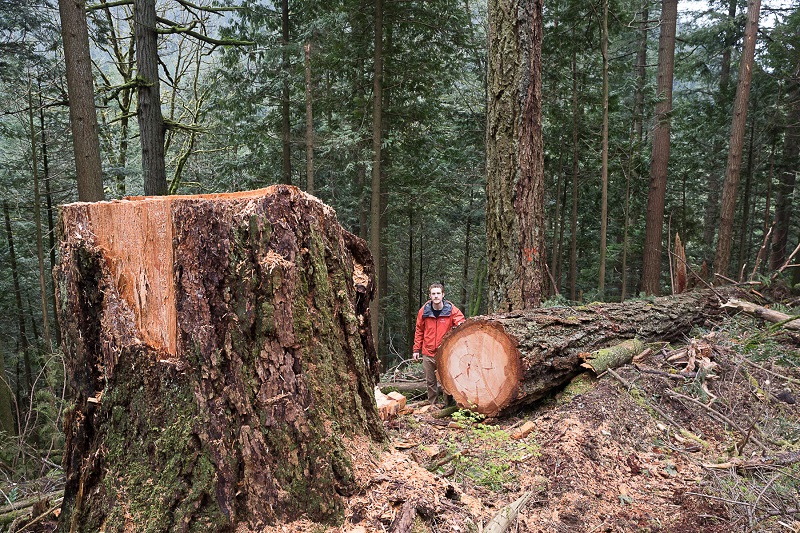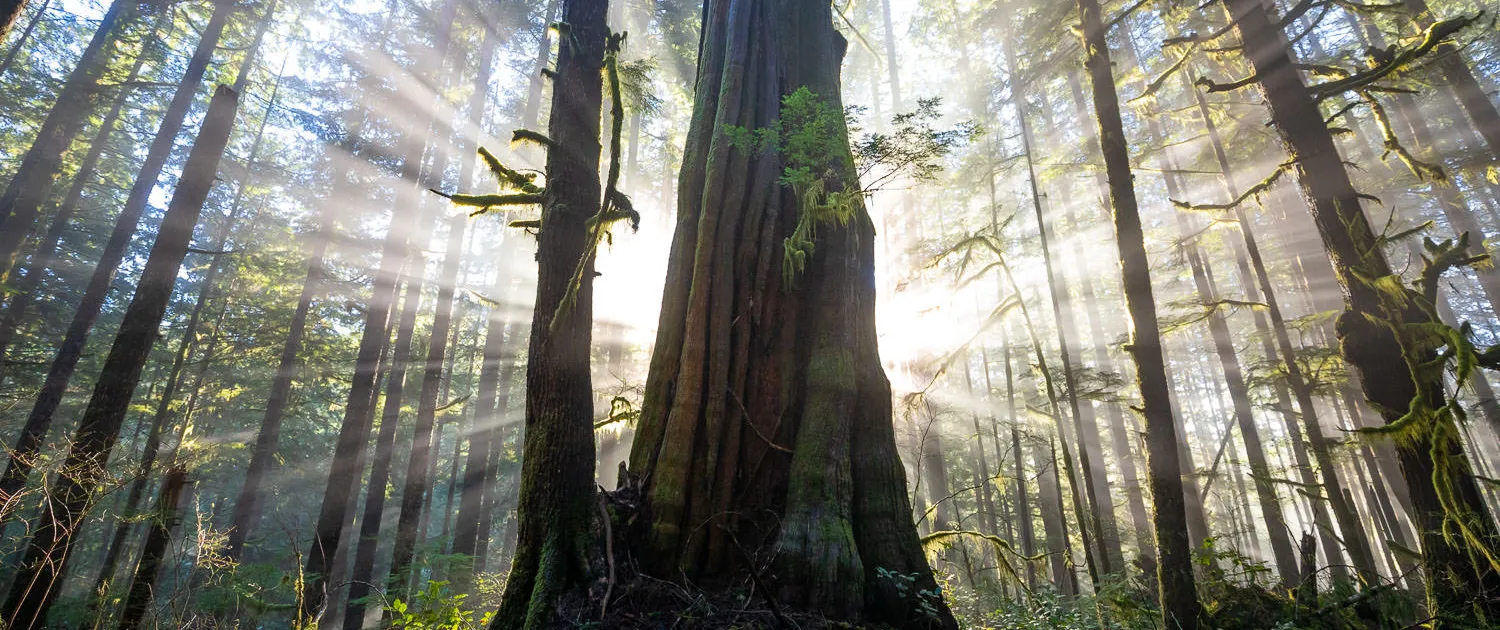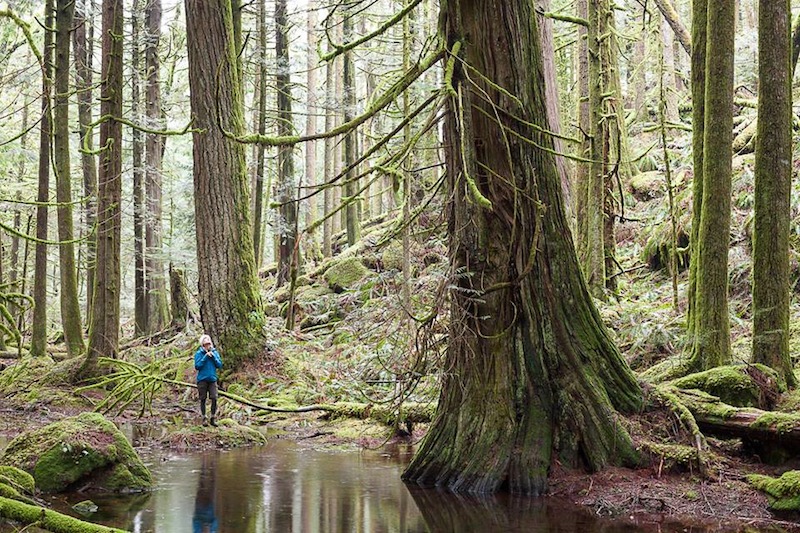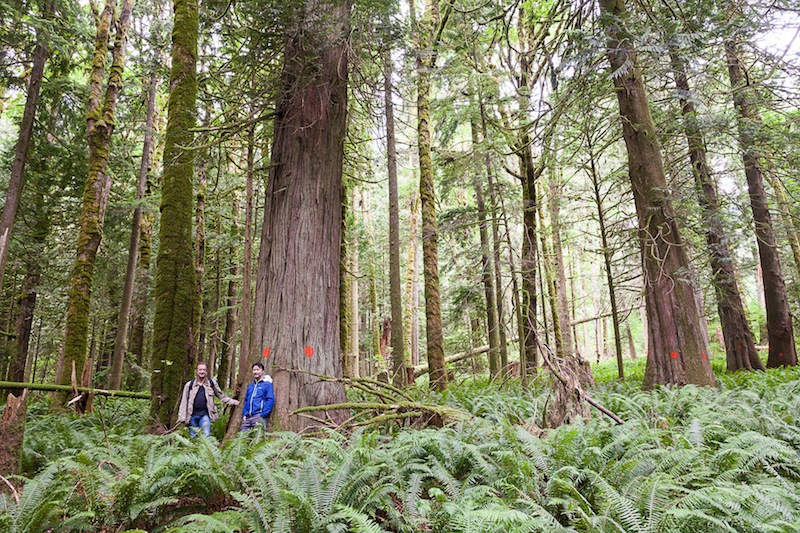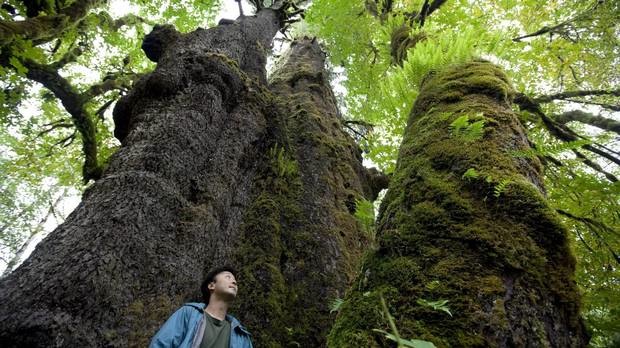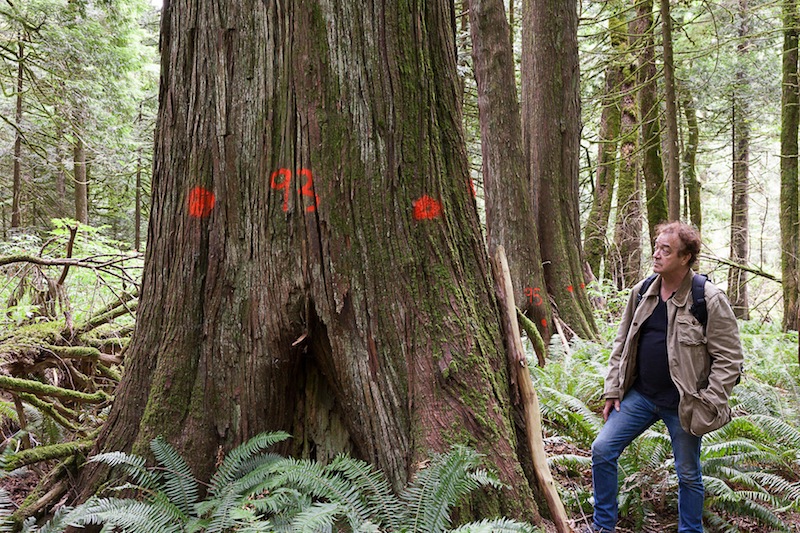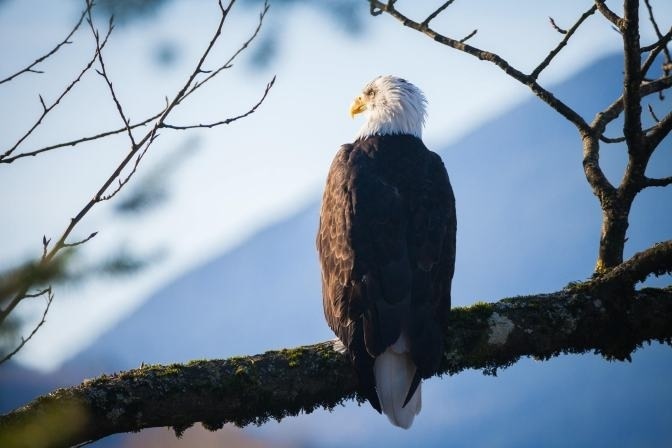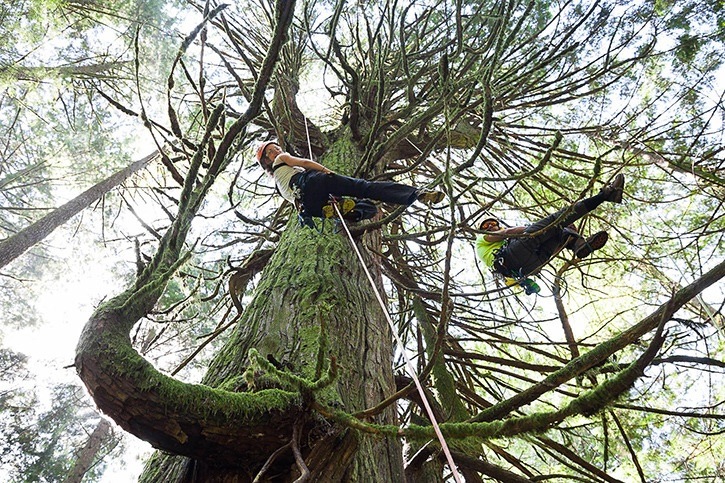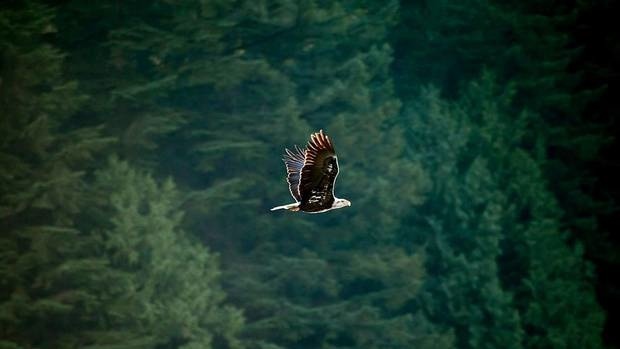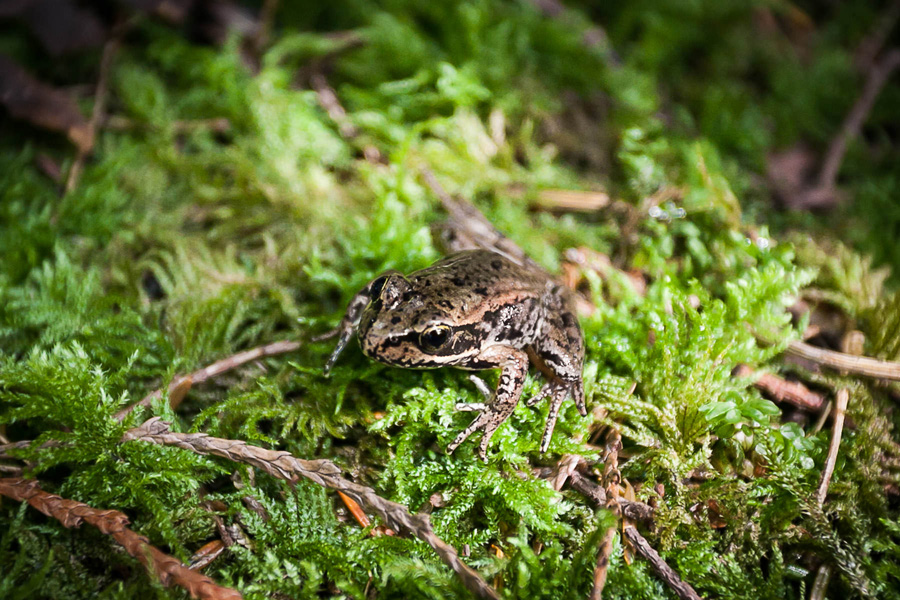Logging Battle Looms as New Road is Pushed into one of Greater Vancouver’s last Lowland Old-Growth Forests – Echo Lake east of Mission
For Immediate Release Conservationists and local landowners are reacting with alarm as a new logging road by C&H Forest Products has progressed over a kilometer into the contentious old-growth and second-growth forests north of Echo Lake as a precursor to logging three planned cutblocks there. Echo Lake includes some of the last unprotected lowland old-growth forests in the Lower Mainland. It is renowned as the world’s largest night-roosting site for bald eagles, with hundreds of eagles roosting in the old-growth trees around the lake on some nights during the fall salmon run, and is home to much wildlife and several species at risk. The area is also part of a Community Drinking Watershed for local residents and is in the traditional, unceded territory of the Sts’ailes First Nation band, who run the Sasquatch EcoLodge and whose members run eagle watching tours nearby. See a recent drone video taken at Echo Lake: www.youtube.com/watch?v=yfLbzncf9Us And the original campaign video at: https://www.youtube.com/watch?v=HPstV14oZ6s

